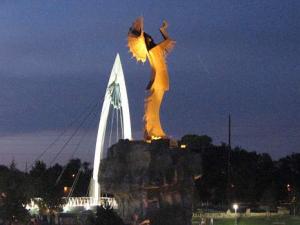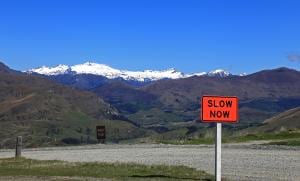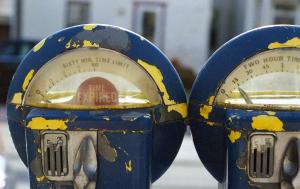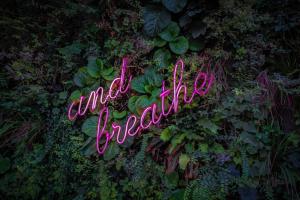The sun came up, gently, again this morning. Surprisingly I have memories of the same thing happening yesterday, the day before, and the litany of days prior.
Habitual, isn’t it, the sun?
I cleared the sticky unknown from my eyes, slid my legs out of bed, and began searching for order. Clothes, yes, clothes first. Good idea.
The switch on the electric kettle glowed “on” before I knew what had happened. Of course I turned it on, it simply didn’t occur to me either to do it or that I had done it. Neuroscientists call this “procedural memory.” Ingrained in our neural pathways and thus our muscle memory, is the way to do certain tasks. Tying our shoes. Gently easing the shower handle from hot to cold. We do these things without exerting mental effort. They’re automatic.
Habitual, aren’t we, those made in the image of God?
I live my life every day with a set of procedural memories governing both practical tasks and higher order personal habits. The way I pray is because of deep grooves in my brain, carved by experiences with pastors and friends throughout my 40+ years. I read what I read with memories of backstories and cultural changes.
I talk with my wife in the ways I do, using the words I do, with the assumptions and safety I feel because of the life we’ve shared together.
We are all memory-made people.
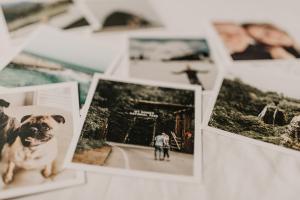 Our experiences shape our memories. Memories influence the stories we form about how the world works, and then we write a script for daily life based on those stories.
Our experiences shape our memories. Memories influence the stories we form about how the world works, and then we write a script for daily life based on those stories.
Everything we do today, from making coffee working for justice, comes out of the deep well of our memories.
Take a moment and think about the things you did today, yesterday, or in the past week. What in your memory banks inspired you to act that way? What pains, struggles, successes, or lifelong questions formed the script for what you did?
I have a hope, a glass-half-full hope at times, but a hope still. I believe that we are all becoming something and that everything we do contributes to the people we are going to be. The other hope is that we are capable of living fully in the wisdom of Jesus as His apprentices. In so doing we become like Him.
But there is a caution here: there is no becoming – no spiritual formation – without our memories.
We cannot outlive or out-morph our memories, stories, and scripts. They’re woven like threads into our skin.
So when I slide my legs out of the bed and do all of the automatic things in front of me, there is more going on than even I know.
I am living out the life formed in my memories. Which means if transformation is going to happen in my life, it must take into consideration these very memories.
Honestly I wrote my most recent book, As I Recall: Discovering the Place of Memories in Our Spiritual Life, after several years of walking people through their memories. We found unredeemed stories: stories that carried a dysfunctional image of God. There were episodes of abuse and ridicule that created a dark story about the person’s identity. Also, there were stories of victories past long neglected.
There is a calling, I believe, in our memories. A call to realize we carry the well of wisdom that is “our lives up to this point.”
We carry within our skull a vibrant spiritual organ, the brain, that shapes itself around both the unredeemed moments and the redemption that frees us.
I believe the Spirit of God is inviting us to go deep into the stories we have lived to this point. To make the coffee, to brush our teeth, and to let our procedural memory carry us forward. But as we go, we bring our stories and scripts.
We bring that life honed from the past into the present, and we have a holy conversation.
The conversation begins with who we are because of these memories, and then moves to who we will be after we begin to embrace and engage those stories long gone by.
Because to put it simply: there’s no such thing as leaving the past behind. It is with us, always.
So where can we partner with the Spirit of God to begin the work of transforming our past?
(Photo by sarandy westfall on Unsplash)


